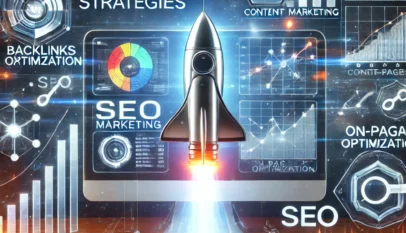
Agriculture strategy consulting plays a crucial role in modern farming operations by helping businesses adapt to changing market dynamics and technological advancements. Effective consulting services can optimize production processes, enhance sustainability, and increase profitability for agricultural enterprises. With an ever-evolving landscape, farmers and agribusinesses face various challenges that require expert guidance.
Consultants in this field analyze data, trends, and individual business needs, offering tailored solutions that drive success. They provide insights on crop management, supply chain efficiency, and market access, ensuring clients remain competitive. This strategic approach not only benefits farmers but also contributes positively to food security and environmental sustainability.
As the agricultural sector faces pressures from climate change and global competition, the demand for skilled consultants is on the rise. Leveraging expertise in agriculture strategy can empower businesses to make informed decisions that foster growth and resilience in a challenging environment.
Understanding the Global Agricultural Landscape
The global agricultural landscape is shaped by various factors, including market dynamics, regulatory requirements, and advancements in technology. Each of these elements plays a significant role in influencing agricultural strategies and outcomes.
Market Dynamics and Trends
Market dynamics in agriculture are driven by supply and demand, commodity prices, and global trade patterns. Fluctuations in weather conditions can impact crop yields, affecting supply. Additionally, changing consumer preferences, such as the shift towards organic and sustainably sourced products, create new market opportunities.
- Key commodities like wheat, corn, and soybeans remain essential in global markets.
Emerging markets are witnessing increased agricultural investments, contributing to growth potential. Understanding these trends allows consultants to provide valuable insights for businesses looking to navigate the complex market landscape effectively.
Regulatory Considerations and Compliance
Regulatory frameworks governing agriculture vary by country and region. They encompass safety standards, environmental regulations, and trade policies that impact production and distribution. Compliance with these regulations is crucial for businesses to ensure sustainability and avoid legal penalties.
- Agencies like the Environmental Protection Agency (EPA) and the Food and Drug Administration (FDA) play key roles in the United States.
International trade agreements can also dictate compliance requirements for exporters. Knowledge of local and international regulations is vital for agricultural consultants to guide clients in maintaining compliance while optimizing operations.
Technological Advancements in Agriculture
Technological advancements are reshaping the agricultural industry. Innovations such as precision agriculture, which utilizes GPS and data analytics, help optimize crop production. Robotics and automation streamline labor-intensive tasks, enhancing efficiency.
- Drones are increasingly used for monitoring crops and managing resources.
Biotechnology, including genetically modified organisms (GMOs), plays a role in improving crop resilience and yield. Understanding these technological trends enables consultants to advise clients on leveraging new technologies for better productivity and sustainability.
Strategic Approach to Agricultural Development
A strategic approach to agricultural development involves integrating sustainable practices with efficient supply chain management. This combination enhances productivity, mitigates risks, and contributes to long-term economic viability.
Sustainable Agricultural Practices
Sustainable agricultural practices focus on balancing productivity with environmental stewardship. Techniques such as crop rotation, integrated pest management, and organic farming methods promote soil health and biodiversity.
Implementing precision agriculture allows for targeted application of resources, minimizing waste and improving yield. These practices reduce the dependency on chemical fertilizers and pesticides, leading to healthier ecosystems.
Key principles include:
- Soil Conservation: Techniques that prevent erosion and maintain soil fertility.
- Water Management: Efficient irrigation methods that minimize water usage.
- Agroforestry: Incorporating trees into farming systems to enhance biodiversity.
These principles support not only the environment but also the economic stability of farming operations.
Supply Chain Optimization
Effective supply chain optimization in agriculture focuses on reducing costs and enhancing delivery efficiency. The process starts with inventory management and extends to logistics and distribution channels.
Adopting technology, like blockchain, increases transparency and traceability in the supply chain. Real-time data analysis helps farmers anticipate market demands and adjust production accordingly.
Important strategies include:
- Direct-to-Consumer Sales: Reducing layers of distribution to increase farmers’ profit margins.
- Cooperative Models: Strengthening bargaining power by pooling resources and sharing costs.
These strategies foster resilience in agricultural supply chains and promote fair trade practices.
British Virgin Islands Company Registration Guide for 2025 Compliance and Benefits
The British Virgin Islands Company Registration process is straightforward, efficient, and…








